Alumni News
Rev. Julia A. Thomas Doutaz (STH’87)
This obituary was originally published on Rebello Funeral Home and Crematory.
East Providence – Reverend Julia A. (Mendes) Thomas- Doutaz,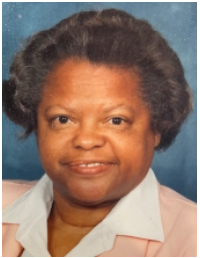 76 of East Providence, RI, died on Wednesday July ,21 2021 at home.
76 of East Providence, RI, died on Wednesday July ,21 2021 at home.
She was the wife of William Doutaz.
She was born in East Providence, a daughter of the late Fortunato and Harriet (Broadway) Mendes.
Rev. Doutaz was an Ordained Minister for the Methodist Church for over 30 years, before retiring.
She was a daughter, sister, niece, cousin, wife, mother, friend, Reverend, listener, talker and most of all she was a momma.
She was a graduate of Boston University and the University of Rhode Island.
Julia was the mother of Julia Isom of Pawtucket, Joseph Thomas of East Providence, Jonathan Thomas of North Brookfield Ma, and Jeffrey Thomas of Wisconsin.
She was the sister of Maria Perry of East Providence, Alethia Mitchell of Providence, Dorothy Shorts of East Providence.
She was the grandmother of 12 and the great grandmother of 7.
She is also survived by many nieces and nephews.
Julia was the sister of the late Harriet Sargent, Fortunato Mendes and James Mendes.
A funeral service for Reverend Doutaz, will be held Saturday, July 31, 2021, at 5:00pm in the Haven United Methodist Church, 200 Taunton Avenue, East Providence, RI.
Relatives and friends are invited to attend.
Calling hours are Saturday July 31,2021 in the REBELLO FUNERAL HOME, 901 Broadway, East Providence, RI, from 2:00pm-4:00pm
In lieu of flowers gifts in her memory may be sent to Camp Aldersgate, 1043 Snake Hill Rd, North Scituate,RI, 02857, www.campaldersgate.com or call 401-568-4350 or to the United Methodist Women, National Office, 475 Riverside Drive, 15th Floor, Attn: LEGACY, New York, NY,10115
www. legacy150@unitedmethodistwomen.org or call 212- 870-3900.
www.rebellofuneralhome.com.
Rev. Dr. Alan C. Rhodes (STH’76)
This obituary was originally published by the DeMarco-Stone Funeral Home Inc. on July 24, 2021.
Guilderland, NY –  The Rev. Dr. Alan C. Rhodes died on July 24, 2021 at St. Peter’s Hospital in Albany, NY.
The Rev. Dr. Alan C. Rhodes died on July 24, 2021 at St. Peter’s Hospital in Albany, NY.
Dr. Rhodes was born July 25, 1951 in Plattsburgh, NY, the son of Charles Oliver Rhodes and Lillian (Cromie) Rhodes. Rev. Rhodes grew up in Saranac, NY and graduated from Saranac Central School. He then went on to complete degrees at Lycoming College, Williamsport, PA (BA); Boston University, School of Theology, Boston MA (M. Div); and Bangor Theological Seminary, Bangor, ME (D. Min.). He also earned credentials in Certified Pastoral Education, which he used as the Chaplain at Wesley Health Care Center for 9 years.
Dr. Rhodes began his ministry as a pastor of the Troy Annual Conference of the United Methodist Church (UMC), serving as the Associate Pastor of the Shenendehowa UMC in Clifton Park, NY; and then served as Pastor at Fort Plain and Freysbush UMCs in Fort Plain, NY; St. Paul’s UMC in Castleton-on-Hudson, NY; Grace UMC in Ravena, NY; North Main Street UMC in Gloversville, NY; Mechanicville UMC in Mechanicville, NY and retired from Esperance-Sloansville UMC in Esperance, NY.
During his ministry, Dr. Rhodes was active in local Church, District and Conference work, having served as: Conference Director of Christian Education, Chair of Council on Finance and Administration, Vice-President of the Board of Trustees of Troy Annual Conference, Registrar for Deacons and Diaconal Ministry of the Board of Ordained Ministry; and as a member of several other boards, agencies and committees over the years.
Pastor Alan was also active in the larger communities in which he served. He served two separate terms as a member of the board of CAPTAIN Youth and Family Services in Clifton Park; as a co-founder and chair of the RCS Task Force Against Domestic Violence in Ravena, NY; as Chair of the Fulton County Domestic Violence Task Force in Gloversville, NY; and as a member of many local community organizations. Dr. Rhodes was Past President of both the former Fort Plain Rotary Club and the Champlain Canal Rotary Club in Mechanicville, NY. He also served on the Board of Mediation Matters.
Alan was married to Holly Craver from 1975 to 1987, He is survived by his wife of 33 years, the former Nancy Lichtenhan of Guilderland, NY, his loving pets, Benjigirl and Koji; as well as a loving family, friends and neighbors.
He was predeceased by his father and mother.
Calling Hours will be held at the DeMarco-Stone Funeral Home, 1605 Helderberg Ave, Rotterdam, NY, on Tuesday July 27, 5-8pm (Tonight).
Funeral will be held at the McKownville UMC, 1565 Western Ave, Albany, NY, Wednesday, July 28th at 1pm.
Burial will be at Saranac Independent Cemetery on Thursday, July 29th.
In lieu of flowers, the family has requested that you remember the life of Dr. Rhodes by making a contribution to a local Domestic Violence program; to CAPTAIN Youth and Family Services in Clifton Park, NY 12065; Guilderland EMS, Station One, 200 Center Drive, Albany, NY 12203, or any health organization.
A big thank you to all those who cared for Alan at St. Peter’s Hospital from the ER, to ICU, to 4Gabe. Also to Town of Guilderland EMS. You were there when we needed you. You were all so good and kind to both Alan and his wife.
Rev. Jack Ronald George (STH’68)
This obituary was originally published on Scarpelli Funeral Homes P.A.
***Due to Allegany Co. Fair traffic, when traveling to Scarpelli Fuenral Home, P.A. in Cresaptown via I-68, attendees may want to use Exit 40 to get to Rt. 220 (via Winchester Road) instead of Exit 42***
BEL AIR, CUMBERLAND – Rev. Jack Ronald George, 84, Bel Air, Cumberland, passed away Tuesday, July 20, 2021, at UPMC Western Maryland.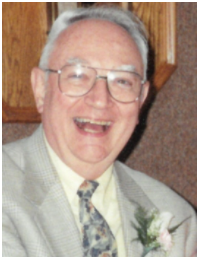
Born August 19, 1936, in Baltimore, he was the son of the late Frank J. and Elizabeth (Fisher) George.
Jack was a graduate of Mergenthaler High School in Baltimore, West Virginia Wesleyan College, and Boston University School of Theology. He went on to serve as a United Methodist pastor at many churches in the Baltimore Conference. He began his ministry at Monroe Street in Baltimore. Later, he served on the Leonardtown charge and the Brookfield-Immanuel in Southern Maryland. In 1983, he moved to LaVale United Methodist Church and finished his career in Lisbon, MD. In retirement, he served churches on the Pleasant Grove charge and the Zion-Centenary charge.
He was a beloved member of East Gate Lodge No. 216 AF&AM, where he served as Chaplain for seventeen years, the Cumberland York Rite Bodies, a 32⁰ Knight Commander of the Court of Honour (KCCH) of the Baltimore and Frederick Scottish Rite Bodies, and Past Asst. Grand Chaplain of the Grand Lodge of Maryland AF&AM.
In his spare time, Jack enjoyed watching old movies, reading nonfiction, and listening to classical music.
Jack leaves behind his loving wife, Elise E. (Mattox) George; brother, Douglas N. George, Baltimore; sister, Francine E. Walz and husband, Russell, Glen Burnie; special friends, Al and Joan Lease.
Friends will be received at the Scarpelli Funeral Home, P.A., 15205 McMullen Hwy SW, Cresaptown, on Friday, July 23, 2021, from 6 to 8pm. The Masonic Memorial Service will be conducted Friday at 7:30 p.m. Funeral services will be held at New Covenant United Methodist Church, Frederick St., Cumberland, on Saturday, July 24, 2021, at 11am with Rev. Harold McClay and Rev. Dr. Chris Gobrecht officiating. Friends will be received at the church one hour prior to the service. Interment will be in Centenary United Methodist Cemetery.
In lieu of flowers, memorial contributions may be made to New Covenant United Methodist Church, 1709 Frederick St, Cumberland, MD 21502 or to West Virginia Wesleyan College, Advancement Office, 59 College Avenue, Buckhannon, WV 26201.
Condolences may be left at www.ScarpelliFH.com.
“Being Better at Being Married” by Terry S. Smith, D.Min., (STH’94)
Being Better at Being Married: Building a Deeper Relationship Through Mutual Understanding
 This book follows a very different path toward helping you be better at being married. Authors Ronald Joyner and Terry Smith do not focus on how couples should best behave. Rather, they offer readers the necessary material and tools for discovering why spouses relate to one another the way they currently do.
This book follows a very different path toward helping you be better at being married. Authors Ronald Joyner and Terry Smith do not focus on how couples should best behave. Rather, they offer readers the necessary material and tools for discovering why spouses relate to one another the way they currently do.
Terry received from Boston University a Doctorate of Ministry in Personality, Religion, and Culture. He has served as a university-based teacher and counselor, & a counseling center director, and a life coach in church and corporate settings. Terry currently serves as Founder and President of Coaching: Life Matters, a non-profit educational organization. He lives with his wife, Charlotte, in Brentwood, Tennessee. For more information, please visit www.coachinglifematters.com.
Luke. 2 vols. Wisdom Commentary 43A and 43B. (Liturgical Press, 2021.) by Dr. Shelly Matthews (STH’87)
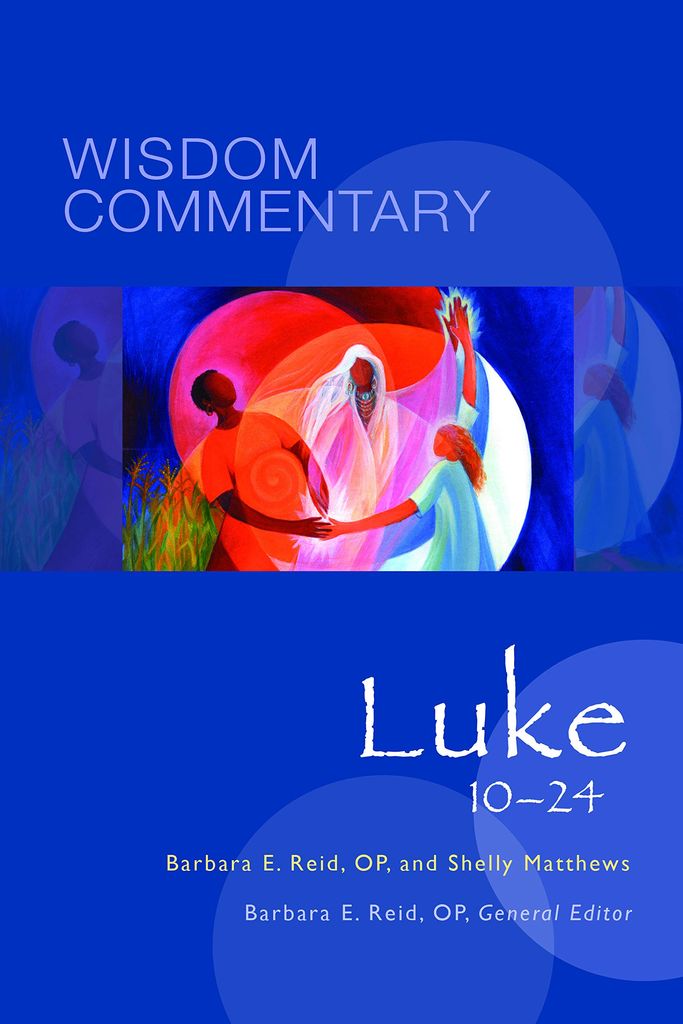 Because there are more women in the Gospel of Luke than in any other gospel, feminists have given it much attention. In this commentary, Shelly Matthews and Barbara Reid show that feminist analysis demands much more than counting the number of female characters. Feminist biblical interpretation examines how the female characters function in the narrative and also scrutinizes the workings of power with respect to empire, to anti-Judaism, and to other forms of othering. Matthews and Reid draw attention to the ambiguities of the text-both the liberative possibilities and the ways that Luke upholds the patriarchal status quo-and guide readers to empowering reading strategies.
Because there are more women in the Gospel of Luke than in any other gospel, feminists have given it much attention. In this commentary, Shelly Matthews and Barbara Reid show that feminist analysis demands much more than counting the number of female characters. Feminist biblical interpretation examines how the female characters function in the narrative and also scrutinizes the workings of power with respect to empire, to anti-Judaism, and to other forms of othering. Matthews and Reid draw attention to the ambiguities of the text-both the liberative possibilities and the ways that Luke upholds the patriarchal status quo-and guide readers to empowering reading strategies.
Dr. Shelly Matthews is professor of New Testament at Brite Divinity School.
Click here to purchase your copy of Luke. 2 vols. Wisdom Commentary 43A and 43B. (Liturgical Press, 2021.) on Amazon.
Real Talk: Critical Race Theory and What Christians Should Know, featuring BUSTH Prof. Cristian De La Rosa
This video was originally posted to the Facebook Page of General Commission on Religion and Race, on 7/22/2021.
Join Garlinda Burton as she talks with Dr. Karla McKanders, Dr. Cristian De La Rosa, and Dr. Miguel De La Torre for this Real Talk conversation on Critical Race Theory and what Christians should know.
Critical Race Theory (CRT) examines how laws in the United States have built and supported racial inequities. It is an ideological framework that names race as a social construct and asserts racialized inequities in society are fostered by historic and current systemic, institutional, and legal policies and practices.
Visit https://www.r2hub.org/library/what-is-critical-race-theory for more information and resources on Critical Race Theory.
Mr. Evan F. Lucas (STH’58)
This obituary was originally published on The Herald, from Jul. 9 to Jul. 10, 2021.
 Evan Frederick Lucas, 91, of Stanwood, Washington, passed away peacefully on June 17.
Evan Frederick Lucas, 91, of Stanwood, Washington, passed away peacefully on June 17.
Evan was born March 23, 1930 in Seattle to Harold and Joy Lucas and grew up in the Roosevelt district. After graduating Roosevelt High School in 1948 Evan attended the University of Washington where he met his wife of 52 years, Joan Lucas, who passed away in 2006. They moved to Boston with their son Stan in 1956 where Evan earned his master's degree in Religious Education at Boston University. Upon their return to the Pacific Northwest, sons Paul and Ken were born and the family lived many happy years in Everett. Evan was the on-site manager of the Deaconess Children's Home for several years before he returned to school earning a second master's degree in Social Work at the University of Washington. For over 30 years he worked proudly as an administrator for Washington State's child welfare services as well as the state's work incentive program at the Department of Social & Health Services, helping to 'make a difference', as he sometimes put it. In 1989, Evan and Joan moved to their lakeside home at Lake Martha near Stanwood where they enjoyed a peaceful lifestyle.
An audiophile of hi-fi jazz and classical music, as well as being a crafty woodworker, Evan spent many hours of pastime building a range of hand-made speakers to accompany his keen selection of audio equipment throughout his early years as a father - much to the rock n' roll joy of his teenage sons later! He was also an avid collector of brass antiques and curiosities which adorned his home, much like a museum, to the delight of all who visited. Evan and Joan were supporters of the local chapter of the Audubon Society and frequently participated in birding excursions for wildlife conservation and sightseeing. A member of the United Methodist Church of Marysville, Evan attended services regularly for many years and maintained friendships there into his later life.
Evan is survived by his sons Stan, Paul and Ken; his daughters-in-law Carol Myre-Lucas, Fiona Knight-Lucas and Michiyo Karita-Lucas; and his grandchildren Gabriel Lucas, Harry Lucas and Charlie Lucas.
March 23, 1930 - June 17, 2021
BUSTH Announces Distinguished Alumni for 2021
July 22, 2021 – The Boston University School of Theology (BUSTH) is pleased to announce this year’s Distinguished Alumni for 2021. A list of previous winners can be found on the BUSTH website.
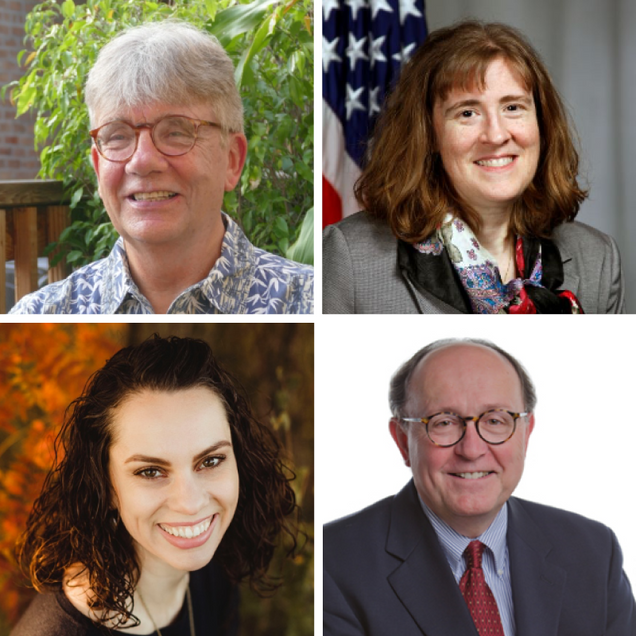 “The 2021 Distinguished Alumni magnificently embody the visionary, transformative leadership needed in this world today,” says G. Sujin Pak, dean. “From a profound vision for prison chaplaincy to powerful LGBTQIA+ activism and advocacy to erudite cultivation of knowledge of global Christianity and women leaders in world Christianity to advanced facilitation of conflict management, effective change, and innovative leadership development, these amazing and gifted leaders bring concrete visibility to the aspirations of theological education, the witness of the Christian gospel, and the hope of renewal and rejuvenation in our churches, communities, social systems, and academies. We are profoundly grateful for these trailblazers and proud to call them our own!”
“The 2021 Distinguished Alumni magnificently embody the visionary, transformative leadership needed in this world today,” says G. Sujin Pak, dean. “From a profound vision for prison chaplaincy to powerful LGBTQIA+ activism and advocacy to erudite cultivation of knowledge of global Christianity and women leaders in world Christianity to advanced facilitation of conflict management, effective change, and innovative leadership development, these amazing and gifted leaders bring concrete visibility to the aspirations of theological education, the witness of the Christian gospel, and the hope of renewal and rejuvenation in our churches, communities, social systems, and academies. We are profoundly grateful for these trailblazers and proud to call them our own!”
A celebration of these alums and their achievements will be part of a special hybrid Community Day, scheduled for Wednesday, September 15, 2021.
2021 School of Theology Distinguished Alumni
Mr. Mark Bowman (STH 1982, MDiv)
Reverend Heidi Kugler (STH 1997, MDiv)
Reverend Dr. Gilbert Rendle, Jr. (STH 1972, MDiv)
In the category of Emerging Leader:
Dr. Gina Ann Zurlo (STH 2017, PhD)
2021 Distinguished Alumni Biographies
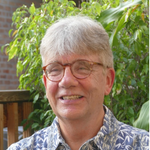 Mark Bowman (1982, MDiv), long-time advocate for LGBTQ justice, was raised in north central Ohio and earned an MDiv at Boston University School of Theology in 1982. Denied clergy status in The United Methodist Church as a gay man, he worked for Bread for the World following seminary and was active with Affirmation: United Methodists for LGBT Concerns. He was among the founders of the Reconciling Congregation Program (now Reconciling Ministries Network) in 1984 and served as co-coordinator and then as executive director, guiding the expansion of this grass roots movement until 1999. There he published the award-winning Open Hands magazine and became a leader in the ecumenical Welcoming Church Movement. Bowman subsequently organized two national conferences of this ecumenical movement, Witness Our Welcome (WOW) 2000 and 2003, each drawing hundreds of participants. The Methodist Federation for Social Action honored Bowman with the Lee & Mae Ball Award for Outstanding Christian Social Witness in 2000. An ongoing interest in history led him to initiate the LGBTQ Religious Archives Network (LGBTQ-RAN) in 2001. LGBTQ-RAN is an innovative grass roots project drawing on digital technology to preserve the history of LGBTQ religious movements around the world. He currently serves as executive director of this unique historical enterprise. Also a trained musician, Bowman has served as choir director, song leader and accompanist in a number of congregations. He trained with the United Methodist Global Praise program and the Iona Community (Scotland) as enlivener of congregational song and has led singing and worship in local, regional and national gatherings. He currently lives in Chicago where he enjoys biking, gardening and hanging out with his three grandchildren.
Mark Bowman (1982, MDiv), long-time advocate for LGBTQ justice, was raised in north central Ohio and earned an MDiv at Boston University School of Theology in 1982. Denied clergy status in The United Methodist Church as a gay man, he worked for Bread for the World following seminary and was active with Affirmation: United Methodists for LGBT Concerns. He was among the founders of the Reconciling Congregation Program (now Reconciling Ministries Network) in 1984 and served as co-coordinator and then as executive director, guiding the expansion of this grass roots movement until 1999. There he published the award-winning Open Hands magazine and became a leader in the ecumenical Welcoming Church Movement. Bowman subsequently organized two national conferences of this ecumenical movement, Witness Our Welcome (WOW) 2000 and 2003, each drawing hundreds of participants. The Methodist Federation for Social Action honored Bowman with the Lee & Mae Ball Award for Outstanding Christian Social Witness in 2000. An ongoing interest in history led him to initiate the LGBTQ Religious Archives Network (LGBTQ-RAN) in 2001. LGBTQ-RAN is an innovative grass roots project drawing on digital technology to preserve the history of LGBTQ religious movements around the world. He currently serves as executive director of this unique historical enterprise. Also a trained musician, Bowman has served as choir director, song leader and accompanist in a number of congregations. He trained with the United Methodist Global Praise program and the Iona Community (Scotland) as enlivener of congregational song and has led singing and worship in local, regional and national gatherings. He currently lives in Chicago where he enjoys biking, gardening and hanging out with his three grandchildren.
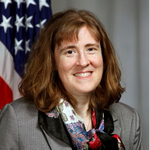 Reverend Heidi Kugler (1997, MDiv) is a graduate of the College of Wooster with her a BA in Sociology and Minors in Religious Studies and Africana Studies. She earned her Masters of Divinity with a specialization in Biblical Studies from Boston University School of Theology. She has completed two units of Clinical Pastoral Education. Heidi is an Ordained Elder from the Greater NJ Annual Conference of the United Methodist Church, a Certified Correctional Chaplain with the Association of Correctional Chaplains Association, and serves on the advisory board of the Chaplaincy Innovation Lab, a professional chaplaincy think tank.
Reverend Heidi Kugler (1997, MDiv) is a graduate of the College of Wooster with her a BA in Sociology and Minors in Religious Studies and Africana Studies. She earned her Masters of Divinity with a specialization in Biblical Studies from Boston University School of Theology. She has completed two units of Clinical Pastoral Education. Heidi is an Ordained Elder from the Greater NJ Annual Conference of the United Methodist Church, a Certified Correctional Chaplain with the Association of Correctional Chaplains Association, and serves on the advisory board of the Chaplaincy Innovation Lab, a professional chaplaincy think tank.
Currently she serves as the national Chaplaincy Administrator for the Federal Bureau of Prisons in Washington, DC. As the Chief of Chaplains for the agency, she provides executive oversight to chaplaincy departments in all 122 federal prisons nationwide. Along with her Central Office Chaplaincy team, she seeks to guide religious accommodations across faith lines, policy development, national training, branch hiring, and faith-based reentry for the agency. Prior to entering the agency, she served as a parish pastor, as well as a chaplain at a county jail and in a state prison in NJ. Her previous Bureau of Prisons duty stations include FDC Honolulu as the Supervisory Chaplain and FCI Fort Dix as the Staff Chaplain.
At a young age, Heidi learned the gift of serving others as a means to give back to God for the many blessings she has received. Over the years, she has served the needs of congregations, at risk youth, poor and homeless persons, incarcerated populations as well as those in the hospital and the elderly. She has a passion for offering the grace of God to break the chains of person’s hearts and lives. Heidi is blessed with a loving husband and three amazing children. She enjoys spending time with family and friends, exercising, reading, watching movies and going to the beach!
 Reverend Dr. Gilbert Rendle, Jr. (1972, MDiv) most recently served as Senior Vice President with The Texas Methodist Foundation in Austin Texas and as an internationally respected independent consultant working with issues of change and leadership in Protestant, Catholic and Jewish denominational systems. Prior to this position he served the Alban Institute as an author, seminar leader and senior consultant for twelve years. An ordained United Methodist minister, Rendle served as senior pastor of two urban congregations in Pennsylvania for sixteen years and as a denominational consultant for The United Methodist Church for nine years.
Reverend Dr. Gilbert Rendle, Jr. (1972, MDiv) most recently served as Senior Vice President with The Texas Methodist Foundation in Austin Texas and as an internationally respected independent consultant working with issues of change and leadership in Protestant, Catholic and Jewish denominational systems. Prior to this position he served the Alban Institute as an author, seminar leader and senior consultant for twelve years. An ordained United Methodist minister, Rendle served as senior pastor of two urban congregations in Pennsylvania for sixteen years and as a denominational consultant for The United Methodist Church for nine years.
Rendle has an extensive background in organizational development, group and systems theory, and leadership development. He has consulted with congregations on conflict, planning, staff and leadership development, and issues of change. He is well known for his work with middle judicatory and national denominational offices and staff as they wrestle with institutional change.
In training workshops and conferences, Rendle has led numerous large and small groups in practical learning that directly impacts participants’ decisions and practice in their leadership roles. He is the author of ten books, a contributor to four books, and the author of numerous articles and monographs. Recent books include Journey in the Wilderness: New Life for Mainline Churches (2010) published by Abingdon Press as well as Doing the Math of Mission (2014) and Quietly Courageous: Leading the Church in a Changing World (2019) published by Rowman & Littlefield. Gil is a resident of Haverford, Pennsylvania where he lives with his wife, Lynne.
Emerging Leader
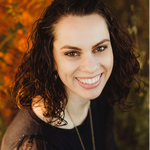 Gina Ann Zurlo (2017, PhD) received her PhD from Boston University School of Theology in 2017 and is Co-Director of the Center for the Study of Global Christianity at Gordon-Conwell Theological Seminary (South Hamilton, MA). As a historian and social scientist, she is interested in the intersection of World Christianity, women’s studies, global history, and mixed-methods research. Her most recent publication, with Todd M. Johnson, is the World Christian Encyclopedia, 3rd edition (Edinburgh University Press, 2019) and she is also co-editor of the World Christian Database (Brill). Dr. Zurlo is a Visiting Research Fellow at Boston University’s Institute on Culture, Religion and World Affairs, where she is Editor-in-Chief of the peer-reviewed Journal of Religion and Demography and works on the World Religion Database (Brill). She teaches courses on World Christianity, women in World Christianity, American Christian history, and mission history. She has forthcoming books on Christianity around the world (Zondervan, 2022) and on women in World Christianity (Wiley-Blackwell, 2023). Dr. Zurlo was named one of the BBC’s 100 Women of 2019 for her work on quantifying religion, in particular, the important role of women in religion around the world. She is married with two daughters and lives on the North Shore of Boston.
Gina Ann Zurlo (2017, PhD) received her PhD from Boston University School of Theology in 2017 and is Co-Director of the Center for the Study of Global Christianity at Gordon-Conwell Theological Seminary (South Hamilton, MA). As a historian and social scientist, she is interested in the intersection of World Christianity, women’s studies, global history, and mixed-methods research. Her most recent publication, with Todd M. Johnson, is the World Christian Encyclopedia, 3rd edition (Edinburgh University Press, 2019) and she is also co-editor of the World Christian Database (Brill). Dr. Zurlo is a Visiting Research Fellow at Boston University’s Institute on Culture, Religion and World Affairs, where she is Editor-in-Chief of the peer-reviewed Journal of Religion and Demography and works on the World Religion Database (Brill). She teaches courses on World Christianity, women in World Christianity, American Christian history, and mission history. She has forthcoming books on Christianity around the world (Zondervan, 2022) and on women in World Christianity (Wiley-Blackwell, 2023). Dr. Zurlo was named one of the BBC’s 100 Women of 2019 for her work on quantifying religion, in particular, the important role of women in religion around the world. She is married with two daughters and lives on the North Shore of Boston.
BUSTH Announces New Anglican-Episcopal Studies Certificate
 Boston University School of Theology (BUSTH) is pleased to announce the approval of a new Certificate in Anglican-Episcopal Studies. The certificate program was designed to prepare students for life and work in the Anglican and Episcopal traditions, though it is open to any interested student. The certificate can be earned in conjunction with degree program requirements at BUSTH, or as a stand-alone certificate.
Boston University School of Theology (BUSTH) is pleased to announce the approval of a new Certificate in Anglican-Episcopal Studies. The certificate program was designed to prepare students for life and work in the Anglican and Episcopal traditions, though it is open to any interested student. The certificate can be earned in conjunction with degree program requirements at BUSTH, or as a stand-alone certificate.
“The new certificate in Anglican-Episcopal Studies signals STH’s commitment to building a robust program of study and formation in the history, theology, polity, spirituality, and liturgy of Anglican and Episcopal faith traditions,” says Associate Dean for Academic Affairs Bryan Stone. “These expanded academic offerings will complement our Anglican-Episcopal Community of Learning, and will be a tremendous resource for us all.”
To earn the certificate, students must take four courses from the approved list, which includes courses such as History of the Episcopal Church, Book of Common Prayer, Dismantling White Privilege, and Worship in the Anglican and Wesleyan Traditions. An additional two semesters of Anglican Formation are required to complete the certificate.
Rev. Kori Pacyniak (STH’15) featured in The New Yorker Article “The Women Who Want to be Priests”
This article was originally published online by The New Yorker on June 21, 2021 and in the print edition of the June 28, 2021, issue, with the headline “Women on the Verge.”
Reverend Kori Pacyniak, (STH'15) is the first known transgender and non-binary person to be ordained within the Roman Catholic women priest movement.
Excerpt:
Pacyniak studied religion and Portuguese at Smith College in the early two-thousands, got a master’s in divinity from Harvard, and then went to Boston University, for a master’s in theology and trauma. At all three institutions, they encountered friendly people from the Episcopal Church—the perpetual temptation of liberal Catholics fed up with the Church’s teachings on gender and sexuality. But Pacyniak felt Catholic to their bones. They happily went to chapel with their new friends, but, as Pacyniak put it to me, “I was, like, ‘I’m not going to become an Episcopalian just because they ordain women.’ ” They did not want to be driven away and leave Catholicism to what they saw as antediluvian forces. They thought, “I’m going to stay and fix my church somehow.”
